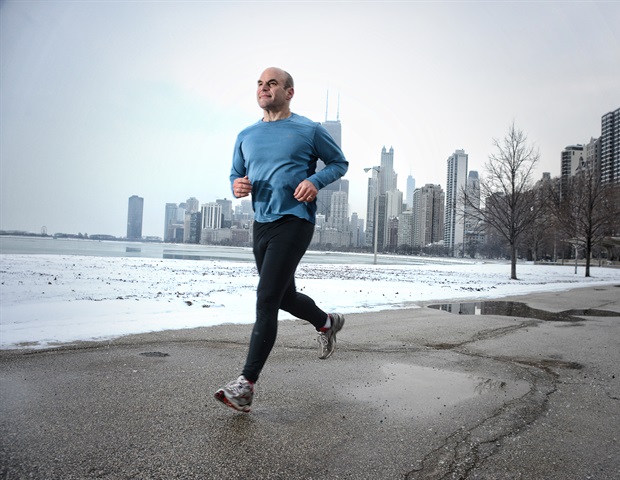Health
New Texas A&M Study Explores Health Benefits of Living in Agrihoods

A new study from Texas A&M University is investigating the health impacts of living in a neighborhood designed around a working farm, known as an “agrihood.” The research, led by Jay Maddock, a professor in the School of Public Health, aims to assess how residents of the Indigo community in Fort Bend County change their lifestyle, diet, and overall health after moving in.
The study will follow a cohort of residents at Indigo, a master-planned community that spans 235 acres, with 42 acres allocated for agricultural use, including crop fields and livestock pastures. Residents are set to begin moving in by the end of March 2024. The design of the neighborhood emphasizes walkability, featuring over half of its land dedicated to car-free green spaces, promoting outdoor activities.
Maddock, who has researched the benefits of green spaces on mental health and the role of natural elements in hospital recovery, notes that the Indigo development offers a unique opportunity to gather comprehensive data on residents before and after their transition to an agrihood. He stated, “The developers took everything we know about what makes a healthy community and incorporated it into this design. It allows us to see if living in this type of community actually changes behavior.”
Agrihoods typically center around a farm or garden and include shared green spaces, walking trails, and community centers. With around 100 such communities in various stages of planning worldwide, Maddock emphasizes the novelty of this concept and the lack of scientific literature on its health benefits.
The study will recruit a total of 350 participants, with 175 residents from Indigo and an equal number from a comparison community located approximately 20 miles away. While the comparison neighborhood shares similar demographics, it lacks the agricultural features of an agrihood. Participants will undergo a detailed survey about their lifestyle prior to moving in, establishing a baseline for their health metrics.
Maddock elaborated on the primary focus of the study: “We’re particularly interested in changes in physical activity and nutrition. We’re also measuring biomarkers such as blood pressure and cholesterol.” A mobile health assessment clinic will visit both communities to collect data on residents’ height, weight, and other health indicators.
The research team will utilize a “Veggie Meter,” a non-invasive device that scans a person’s finger to estimate their fruit and vegetable consumption based on carotenoid levels in the skin. To monitor physical activity, participants will wear accelerometers.
According to Maddock, many prospective residents of Indigo expressed their desire to live close to a working farm. The study also aims to assess social connectedness among residents. “It appears that people connect more with each other and with the farm, but so far, this is anecdotal evidence,” he commented. “This is a first-of-its-kind exploration.”
Maddock sees agrihoods as a promising model for urban development, especially as many people are increasingly disconnected from their food sources. “Forty percent of Americans have never met a farmer,” he noted. “Agrihoods can help bridge that gap by bringing farming back to urban communities and enhancing health through better food access.”
In addition to health metrics, the study will conduct focus groups to understand community engagement with the agricultural aspects of Indigo. This will inform the design of future agrihoods by identifying which features residents utilize and how to enhance their integration into farming life.
The 13-month study is co-led by Lexi MacMillan Uribe from AgriLife Research and Renee Umstattd Meyer from Baylor University, alongside a multidisciplinary team of co-investigators. Support for the research comes from the Texas A&M AgriLife Institute for Advancing Health Through Agriculture and the U.S. Department of Agriculture under agreement number 58-3091-1-018.
-

 Entertainment3 months ago
Entertainment3 months agoAnn Ming Reflects on ITV’s ‘I Fought the Law’ Drama
-

 Entertainment4 months ago
Entertainment4 months agoKate Garraway Sells £2 Million Home Amid Financial Struggles
-

 Health3 months ago
Health3 months agoKatie Price Faces New Health Concerns After Cancer Symptoms Resurface
-

 Entertainment3 months ago
Entertainment3 months agoCoronation Street’s Carl Webster Faces Trouble with New Affairs
-

 Entertainment3 months ago
Entertainment3 months agoWhere is Tinder Swindler Simon Leviev? Latest Updates Revealed
-

 Entertainment4 months ago
Entertainment4 months agoMarkiplier Addresses AI Controversy During Livestream Response
-

 Science1 month ago
Science1 month agoBrian Cox Addresses Claims of Alien Probe in 3I/ATLAS Discovery
-

 Health4 months ago
Health4 months agoCarol Vorderman Reflects on Health Scare and Family Support
-

 World2 weeks ago
World2 weeks agoBailey Announces Heartbreaking Split from Rebecca After Reunion
-

 Entertainment4 months ago
Entertainment4 months agoKim Cattrall Posts Cryptic Message After HBO’s Sequel Cancellation
-

 Entertainment3 months ago
Entertainment3 months agoOlivia Attwood Opens Up About Fallout with Former Best Friend
-

 Entertainment2 weeks ago
Entertainment2 weeks agoCoronation Street Fans React as Todd Faces Heartbreaking Choice









